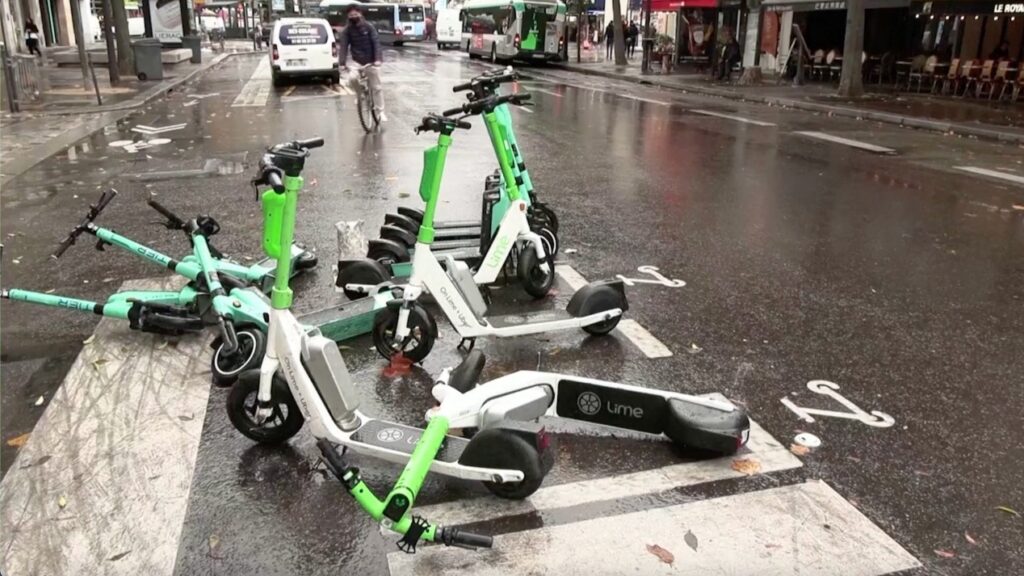
The decision of Paris to ban rental e-scooters is not surprising. Paris, the city of lights, has become one of the most congested cities in Europe. All sorts of transportation crowd the streets of Paris, with over 2 million inhabitants and millions of tourists each year.
In recent years, electric scooters have become increasingly popular in the city. They have also caused many problems, including accidents, noise pollution, and sidewalks blocked with abandoned scooters. To tackle these issues, the Paris City Council has announced a ban on rental e-scooters from September.
The city has been trying to regulate the use of these devices for a while. In 2019, the Paris City Council introduced a set of rules for e-scooter operators. Such as limiting their speed to 20 km/h, requiring users to wear helmets, and prohibiting the use of e-scooters on sidewalks. However, these rules were not enough to prevent the problems caused by e-scooters.
One of the main issues with e-scooters in Paris is safety. According to the French Ministry of Interior, there were over 1,500 accidents involving e-scooters in 2019. However, the number of accidents has been increasing every year. E-scooters can reach speeds of up to 30 km/h, which can be dangerous for pedestrians and other users of the road. In addition, many users do not wear helmets or do not know how to use the devices safely.
Another problem with e-scooters in Paris is noise pollution. E-scooters can be quite loud, especially when driven at high speeds. This can be very disruptive, especially in residential areas at night. Furthermore, the constant sound of e-scooters has been known to cause stress and anxiety in some people.
Lastly, e-scooters in Paris have caused a significant problem with the blocking of sidewalks. Many users leave their devices on the sidewalk after use, which makes it difficult for pedestrians to navigate the city, despite e-scooter operators being responsible for collecting them at the end of the day.
The ban on rental e-scooters in Paris will be a significant change for both tourists and residents of the city. The city hopes that the ban will reduce accidents, noise pollution, and sidewalk blockages and that it will encourage people to use more sustainable modes of transportation, such as walking or cycling. The ban will prohibit rental e-scooters, but it will still allow private e-scooters, and operators who violate the ban will face fines.
In conclusion, the ban on rental e-scooters in Paris is a step in the right direction for the city. E-scooters have caused many problems in Paris, and it is time for the city to take action. The ban will not only make the city safer and less noisy but also encourage people to use more sustainable modes of transportation. As other cities around the world grapple with similar issues related to e-scooters, Paris may serve as an example of how to regulate them properly.
